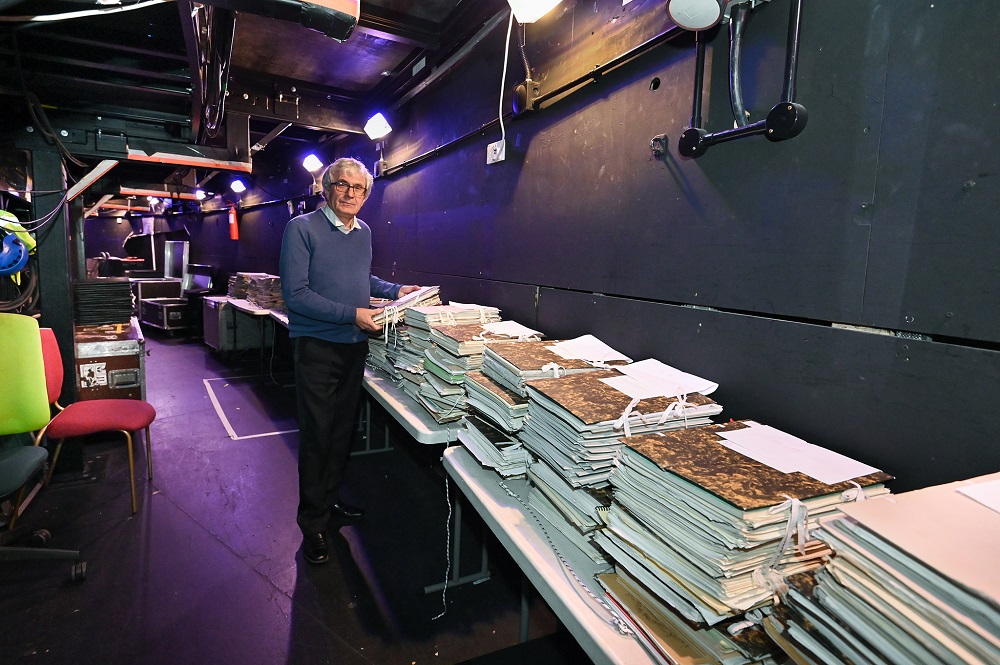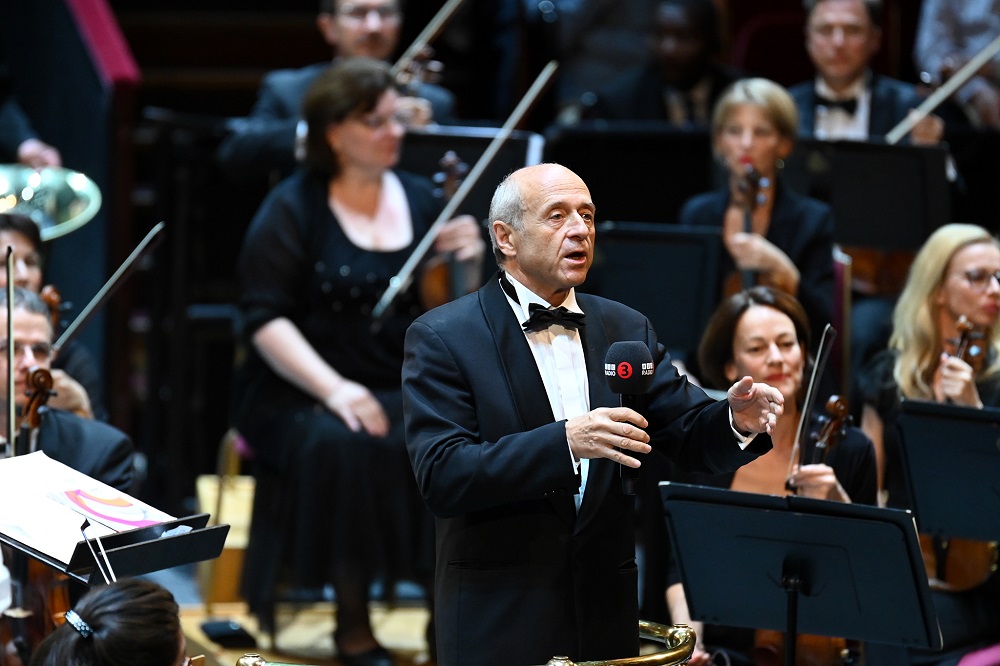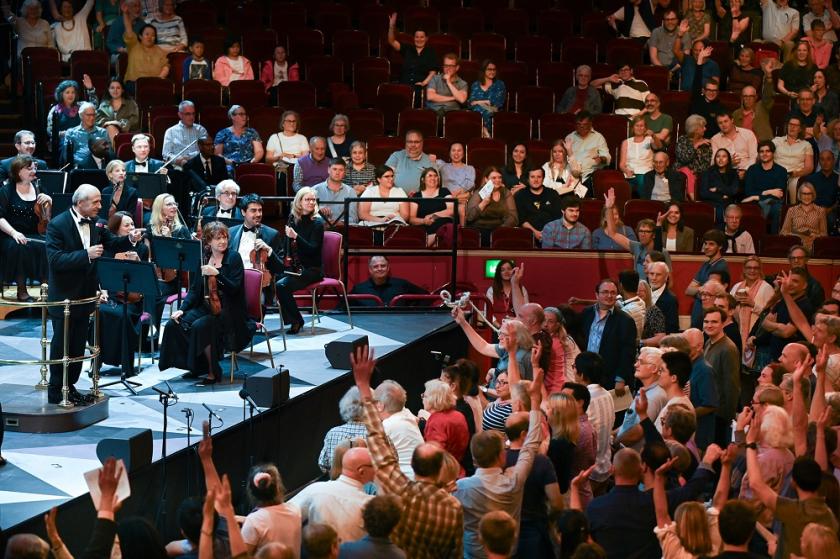It would be worth travelling a long way to hear the Budapest Festival Orchestra giving such a lithe, athletic performance under its founder and Music Director Iván Fischer of Glina’s Ruslan and Lyudmila Overture. That was the Radio 3 and Proms Audience Choice from 19 overtures and preludes whittled down to three. What happened next, despite some equally lustrous playing, didn’t always work so well.
What was I expecting? A banquet of the kind of pieces you don’t often get in a conventional concert – ballet music, operatic preludes and intermezzi, tone poems of up to 20 minutes in length. There were in fact nearly 100 of these on offer in the "encores" section, from a full list of 275 works BFO librarian and violinist Tibor Gátay (pictured below with the scores backstage at the Royal Albert Hall) had apparently at the ready. That could also have upped the quotient of women composers (there was only one on the entire list, Fanny Hensel). But the main idea, to put together a symphony of four movements from different works, brought problems with it.  Three seat numbers were read out (Prommers got their moment eventually when Fischer threw a beach ball into the Arena); the three choices were put to the hands-up-and-shout vote; and while the chosen work’s parts were distributed among the players, we heard a series of chamber-musical and folk divertimenti – the most charming part of the afternoon. They included conventional sweetness in the first of Shostakovich’s Five Pieces for Two Violins and Piano, klezmer and Hungarian folk music, a Monteverdi madrigal with singing from some of the players and two spellbinding improvisations.
Three seat numbers were read out (Prommers got their moment eventually when Fischer threw a beach ball into the Arena); the three choices were put to the hands-up-and-shout vote; and while the chosen work’s parts were distributed among the players, we heard a series of chamber-musical and folk divertimenti – the most charming part of the afternoon. They included conventional sweetness in the first of Shostakovich’s Five Pieces for Two Violins and Piano, klezmer and Hungarian folk music, a Monteverdi madrigal with singing from some of the players and two spellbinding improvisations.
So why am I going to be curmudgeonly about the symphonic choices? Because radio schedules mean timings can’t run over too much, and only imagine what would have happened if the main choices had been the first movement of Mahler 9, the Andante con moto of Schubert 9, the Presto of Beethoven 7 and the finale of Brahms 4. As it was, the first choice – the fateful opening movement of Tchaikovsky 4 – already ran to 18 minutes, though it was enlightening to hear Fischer’s febrile way with it, including hair-raising tremolos in the final tragic statement. The second movement was bound to be shorter, between two Haydn charmers (the “Hen” and the “Oxford” symphonies) and the “Wandering by the Brook” of Beethoven’s “Pastoral”: no prizes for guessing the choice in the hall. It was lovely, of course, with winning woodwind solos long before we got to the cadenza of three birdsongs (no player names listed in the programme).
Unfortunately the Scherzo from Dvořák’s Seventh was shorn of its bucolic trio and main repeat, and of Mendelssohn’s “Scottish” Symphony – which had already been played by the same team the previous evening – we only got the bright apotheosis of the finale, though the magnificent BFO horns certainly shone here.  What rather took me aback was that Fischer, unquestionably one of the world’s great conductors (so is his brother, Ádám), was less sleek as a compère. True, the Hungarian accent is winning in itself. But we lost time when he needed choices – clear to the rest of us – to be repeated, and the encore situation nearly descended into chaos. No, we couldn’t have Milhaud’s Le boeuf sur le toit because it was too long (so why not do it from the tango to the end?).
What rather took me aback was that Fischer, unquestionably one of the world’s great conductors (so is his brother, Ádám), was less sleek as a compère. True, the Hungarian accent is winning in itself. But we lost time when he needed choices – clear to the rest of us – to be repeated, and the encore situation nearly descended into chaos. No, we couldn’t have Milhaud’s Le boeuf sur le toit because it was too long (so why not do it from the tango to the end?).
From the ensuing muddle, there were two clear winners, both of them seeming to get equal support: Leroy Anderson’s The Typewriter and Brahms’s Hungarian Dance No. 5. Fischer decided the more obvious choice had won – and it’s a too frequent encore anyway, sounding horrid in this arrangement. The idea would be welcome back, but maybe with a refined format, and the potential for a few more surprises.













Add comment